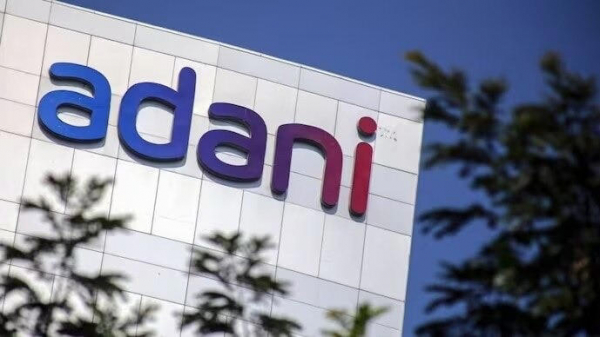Kenya Cancels Proposed Airport, Power Transmission Deals with Adani Group After US Indictments
Kenya's Proposed Deals with Adani Kenya had been in the advanced stages of negotiations with the Adani Group for the construction of a new international airpor
- by B2B Desk 2024-11-22 07:11:55
In a significant development, Kenya has decided to cancel proposed airport and power transmission deals with the Adani Group, following indictments in the United States. This decision marks a major shift in the country's infrastructural and energy plans and reflects the growing global scrutiny of the Adani Group's activities.
Background of the Adani Group
The Adani Group, an Indian multinational conglomerate, has extensive interests in various sectors, including energy, resources, logistics, agribusiness, real estate, financial services, and defense. Over the years, the group has expanded its footprint globally, with significant investments in Australia, Indonesia, and several African countries, including Kenya. However, the conglomerate has also faced numerous allegations and legal challenges concerning its business practices and environmental policies.
The US Indictments
The US indictments against the Adani Group relate to alleged financial misconduct and violations of international regulations. These charges have not only tarnished the reputation of the conglomerate but have also prompted several countries to reassess their business dealings with the group. The specifics of the indictments include accusations of financial irregularities, money laundering, and violations of environmental laws.
Kenya's Proposed Deals with Adani
Kenya had been in the advanced stages of negotiations with the Adani Group for the construction of a new international airport and the development of power transmission infrastructure. These projects were seen as critical components of Kenya's Vision 2030 development agenda, aimed at transforming the country into a newly industrializing, middle-income nation providing a high quality of life to all its citizens.

Airport Deal
The proposed airport deal involved the construction of a state-of-the-art international airport in Nairobi. This project was expected to significantly boost Kenya's aviation capacity, enhance tourism, and improve the country's connectivity with the rest of the world. The airport was also poised to become a major hub for air travel in East Africa.
Power Transmission Deal
The power transmission deal aimed to enhance Kenya's energy infrastructure by improving the efficiency and reliability of power distribution across the country. This project was expected to support Kenya's growing demand for electricity, driven by rapid urbanization and industrialization.
The Cancellation Decision
The decision to cancel these deals was influenced by multiple factors. Key among them was the adverse impact of the US indictments on the Adani Group's credibility and financial stability. Additionally, there were growing concerns within Kenya about the environmental and social impacts of these projects, which further fueled the decision to terminate the agreements.
Government's Statement
In a statement, a spokesperson for the Kenyan government said, "After careful consideration of the recent developments and the indictments in the United States, we have decided to cancel the proposed deals with the Adani Group. This decision is in the best interest of our nation's integrity and sustainable development goals."
Impact on Kenya's Development Plans
The cancellation of these deals presents a setback for Kenya's infrastructure and energy development plans. However, the government has expressed confidence in finding alternative partners to execute these critical projects. Efforts are underway to seek new bids and explore partnerships with other international firms that adhere to strict governance and environmental standards.
Global Implications
Kenya's decision to cancel these deals underscores the broader implications of the US indictments on the Adani Group's global operations. It also highlights the increasing importance of ethical business practices and environmental sustainability in international investments. Other countries with existing or potential deals with the Adani Group may also reconsider their engagements in light of these developments.
Conclusion
Kenya's move to cancel the proposed airport and power transmission deals with the Adani Group marks a significant turning point in the country's development trajectory. While this decision reflects a commitment to ethical governance and environmental sustainability, it also opens up new opportunities for partnerships that can drive Kenya's growth aspirations. As the situation unfolds, it will be crucial for Kenya to navigate these challenges and continue its progress towards achieving its Vision 2030 goals.
Also Read: UPI 123 Pay: Key Changes to Come into Effect Before January 1
POPULAR POSTS
Loan EMIs to Drop as RBI Slashes Repo Rate - Full MPC December 2025 Highlights
by Shan, 2025-12-05 11:49:44
Zoho Mail vs Gmail (2025): Which Email Platform Is Best for Businesses, Startups, and Students?
by Shan, 2025-10-09 12:17:26
PM Modi Launches GST Bachat Utsav: Lower Taxes, More Savings for Every Indian Household
by Shan, 2025-09-24 12:20:59
$100K H-1B Visa Fee Explained: Trump’s New Rule, Clarifications & Impact on Indian Tech Workers
by Shan, 2025-09-22 10:11:03
India-US Trade Deal Soon? Chief US Negotiator Arrives in Delhi as Talks Set to Begin Tomorrow
by Shan, 2025-09-15 11:54:28
Modi Meets Xi: Trump’s Tariffs, Strategic Autonomy, and the Future of Asia’s Power Balance
by Shan, 2025-09-03 06:40:06
Google Claims Gemini AI Uses Just ‘Five Drops of Water’ Per Prompt, Sparks Debate
by Shan, 2025-08-22 12:34:27
RECENTLY PUBLISHED

Pine Labs IPO 2025: Listing Date, Grey Market Premium, and Expert Outlook
- by Shan, 2025-11-05 09:57:07

The Agentic Revolution: Why Salesforce Is Betting Its Future on AI Agents
- by Shan, 2025-11-05 10:29:23

Top 10 Insurance Companies in India 2026: Life, Health, and General Insurance Leaders Explained
- by Shan, 2025-10-30 10:06:42

OpenAI Offers ChatGPT Go Free in India: What’s Behind This Big AI Giveaway?
- by Shan, 2025-10-28 12:19:11

Best Silver Investment Platforms for 2025: From CFDs to Digital Vaults Explained
- by Shan, 2025-10-23 12:22:46





 Subscribe now
Subscribe now 